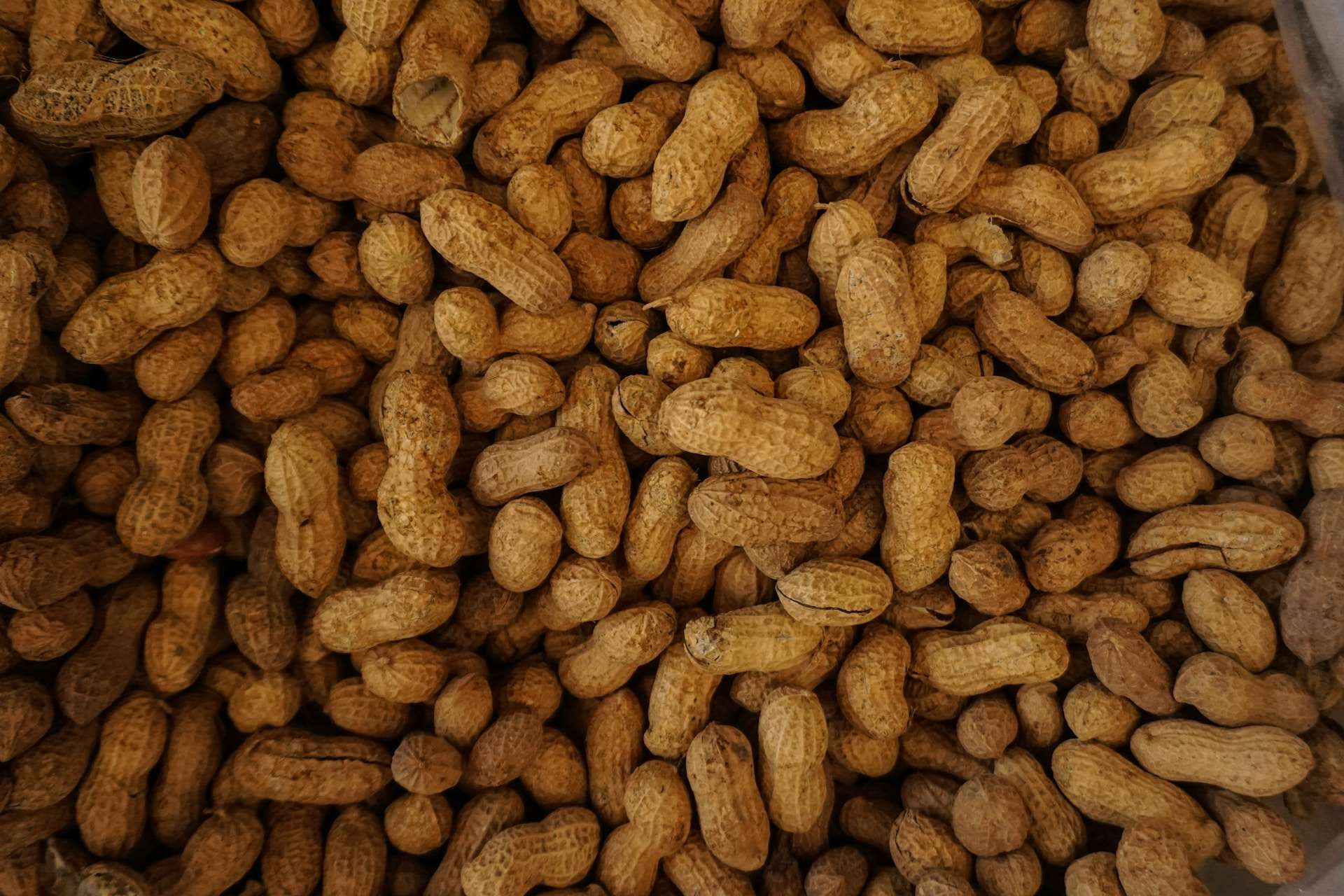
Peanuts are a beloved snack enjoyed by people all over the world. Whether you like them roasted, salted, or turned into creamy peanut butter, there’s no denying the widespread appeal of these tasty legumes. But there’s more to peanuts than just their delicious flavor. In this article, we will uncover 19 fascinating facts about peanuts that will give you a deeper appreciation for this humble nut. From their ancient origins to their nutritional value and even their surprising use in industrial applications, there’s a lot to learn about peanuts. So, grab a handful of your favorite peanut variety and get ready to explore the incredible world of peanuts!
Key Takeaways:
- Peanuts are not nuts, but legumes, packed with nutrients and used in various cuisines. However, peanut allergies are common and can be life-threatening, so always read food labels carefully.
- The United States is the largest producer of peanuts, with a long history dating back thousands of years. Peanuts play a significant economic role and have versatile uses, from making peanut butter to sustainable farming practices.
Peanuts are not actually nuts, but legumes!
Contrary to popular belief, peanuts belong to the legume family, along with beans and lentils. They grow in pods underground, making them different from tree nuts.
The scientific name for peanuts is Arachis hypogaea.
The Latin name for peanuts, Arachis hypogaea, reflects their underground growth. “Arachis” means “groundnut” in Greek, while “hypogaea” means “below the Earth” – a fitting name for this plant.
Peanuts are packed with nutrients.
Peanuts are an excellent source of protein, fiber, healthy fats, and various vitamins and minerals. They are also rich in antioxidants, which help protect the body against oxidative stress.
Peanuts are a good source of energy.
Due to their high-calorie content, peanuts provide a sustained source of energy, making them a popular snack choice for athletes and those leading active lifestyles.
Peanut allergies are common.
Peanut allergies are one of the most common food allergies, affecting both children and adults. Even small traces of peanuts can trigger severe allergic reactions in some individuals.
The United States is the largest producer of peanuts in the world.
The United States leads the global production of peanuts, with states like Georgia, Texas, and Alabama being major peanut-growing regions.
Peanuts have a long shelf life.
Due to their high oil content, peanuts have a long shelf life when stored properly. They can remain fresh for several months or even up to a year.
Peanut butter is a popular spread.
Peanut butter is a versatile and delicious spread made from ground peanuts. It is a staple in many households and is enjoyed on sandwiches, with fruits, or as an ingredient in various recipes.
Peanuts are widely used in Asian cuisine.
Asian cuisines, such as Thai, Vietnamese, and Chinese, often incorporate peanuts as a key ingredient in dishes like satay, pad thai, and kung pao chicken.
Peanuts can be used to make cooking oil.
Peanut oil, derived from pressing peanuts, is commonly used in cooking and frying. It has a high smoke point and imparts a mild, nutty flavor to dishes.
Peanuts are a favorite snack at ball games.
Crunchy and satisfying, peanuts have long been associated with sporting events, especially baseball games. They are often enjoyed roasted and salted.
Peanut shells are used for animal feed, compost, and fuel.
After the peanuts are harvested, the shells have various uses. They can provide feed for animals, be composted for soil enrichment, or even be used as biomass fuel.
Peanuts are rich in resveratrol.
Resveratrol is a natural plant compound found in peanuts, known for its antioxidant effects and potential health benefits, including heart health and longevity.
Peanuts have a significant economic impact.
The peanut industry contributes billions of dollars to the economy, supporting farmers, processors, manufacturers, and all the related sectors involved in the production and distribution of peanuts.
Peanuts can be roasted, boiled, or eaten raw.
Peanuts can be enjoyed in various forms. They can be roasted to enhance their flavor, boiled for a softer texture, or simply eaten raw as a snack.
Peanuts play a role in sustainable farming.
Peanuts improve soil quality by fixing nitrogen from the atmosphere, reducing the need for synthetic fertilizers. They also require less water compared to other crops, making them a sustainable choice for farmers.
Peanut shells can be used to make biofuels.
Peanut shells, a byproduct of peanut processing, can be converted into biofuels, such as briquettes or pellets, providing an eco-friendly alternative to traditional fossil fuels.
Peanut allergies can be life-threatening.
For individuals with peanut allergies, exposure to peanuts can trigger severe and potentially life-threatening reactions, leading to anaphylaxis. It is important to always read food labels carefully and avoid cross-contamination.
The history of peanuts dates back thousands of years.
Peanuts have a rich history, with evidence of their cultivation dating back as far as 7,600 years ago. Native to South America, the peanut plant was introduced to Europe and other parts of the world during the 16th century.
Conclusion
In conclusion, peanuts are an incredibly versatile and nutritious food. From being packed with essential nutrients to having numerous health benefits, these delicious legumes have much to offer. Whether you enjoy them as a snack, in spreads like peanut butter, or as ingredients in various dishes, peanuts add a delightful flavor and texture.Remember to enjoy peanuts in moderation, as they are calorie-dense. If you have any allergies or concerns, consult with a healthcare professional before incorporating them into your diet. With their satisfying crunch and rich taste, peanuts are a fantastic addition to any meal or snack. So go ahead, indulge in the goodness of peanuts and reap the benefits they have to offer!
FAQs
1. Are peanuts actually nuts?
Contrary to popular belief, peanuts are not nuts! They are legumes, meaning they belong to the same family as beans and lentils.
2. Can peanuts cause allergies?
Yes, peanuts are a common allergen. Individuals with peanut allergies should avoid consuming peanuts and products that may contain them to prevent allergic reactions.
3. Are peanuts high in fat?
While peanuts have a moderate amount of fat, the majority of it is healthy unsaturated fat. They can be a part of a balanced diet when consumed in moderation.
4. Can peanuts help with weight loss?
Peanuts can aid in weight loss due to their high protein and fiber content, providing a feeling of fullness. However, moderation is key due to their calorie density.
5. Are raw or roasted peanuts better?
The choice between raw and roasted peanuts comes down to personal preference. Both options have their own unique flavor and texture.
6. Can peanuts be beneficial for heart health?
Peanuts contain heart-healthy fats, such as monounsaturated fats, along with antioxidants and other compounds that can support cardiovascular health when consumed as a part of a balanced diet.
7. Are peanuts a good source of protein?
Yes, peanuts are an excellent source of plant-based protein. They can be a great option for vegetarians and vegans to meet their protein needs.
8. Can peanuts help lower cholesterol levels?
Studies have shown that peanuts, when consumed in moderation, can help lower LDL (bad) cholesterol levels, thanks to their healthy fats and fiber content.
9. Are peanuts beneficial for brain health?
Peanuts contain nutrients like vitamin E, folate, and niacin, which are essential for brain health and cognitive function.
10. Can peanuts be included in a gluten-free diet?
Yes, peanuts are naturally gluten-free, making them a suitable option for individuals following a gluten-free diet.
Peanuts' versatility extends beyond snacking and cooking. Curious about peanut butter's nutritional profile? Explore our articles on Peanut Butter Cheerios, Skippy Peanut Butter, and Kind Bars to learn more about how these popular products stack up. Whether you're a health-conscious consumer or simply love the creamy goodness of peanut butter, our informative articles will help you make informed choices and satisfy your peanut butter cravings.
Was this page helpful?
Our commitment to delivering trustworthy and engaging content is at the heart of what we do. Each fact on our site is contributed by real users like you, bringing a wealth of diverse insights and information. To ensure the highest standards of accuracy and reliability, our dedicated editors meticulously review each submission. This process guarantees that the facts we share are not only fascinating but also credible. Trust in our commitment to quality and authenticity as you explore and learn with us.


